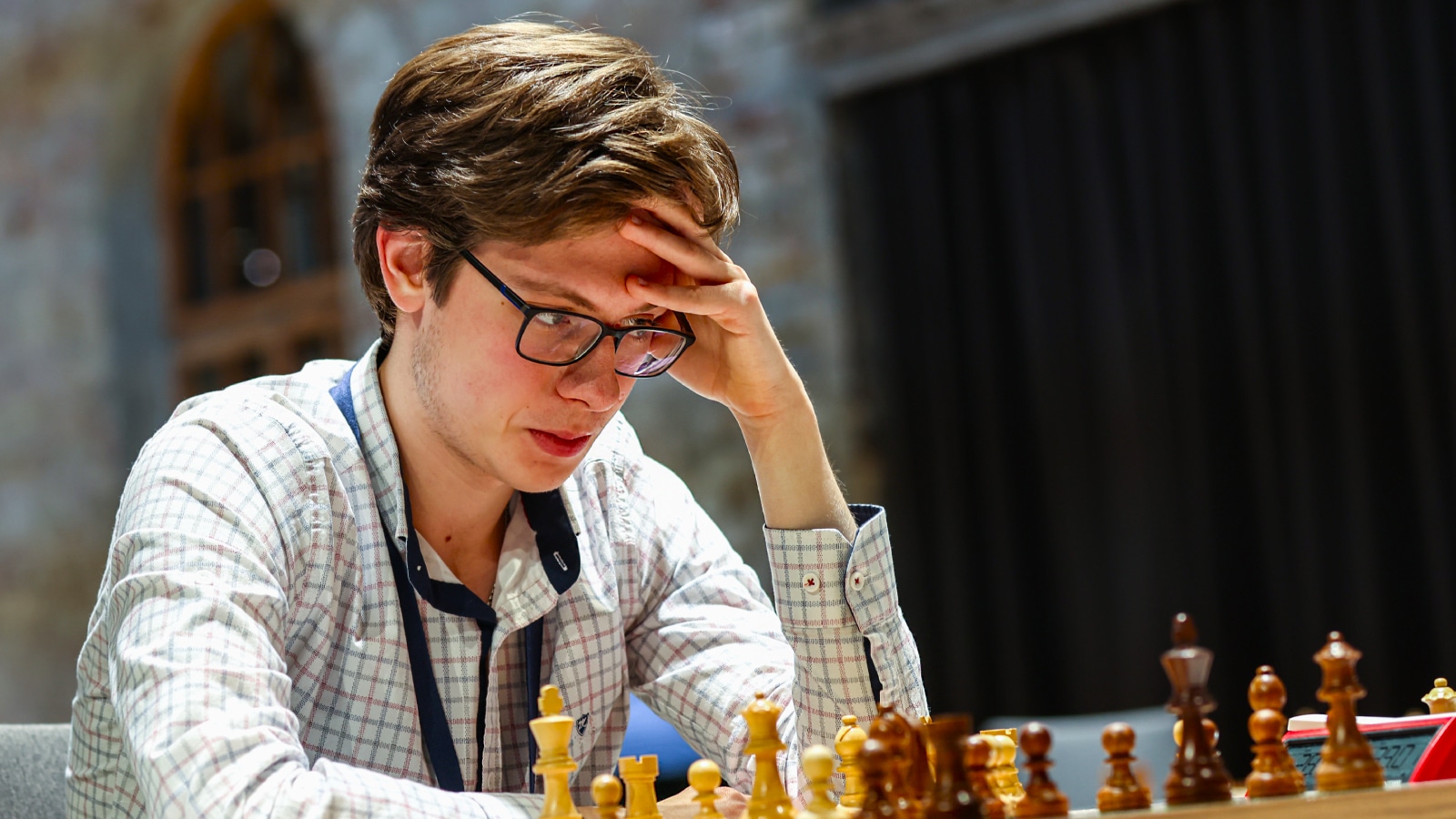In a decision that reverberates through the global chess community, the FIDE Ethics & Disciplinary Commission (EDC) has delivered its final verdict on Grandmaster Kirill Shevchenko. The Romanian player, whose promising career once shone brightly, now faces a three-year worldwide ban from all FIDE-rated events and the revocation of his prestigious Grandmaster title. This landmark ruling, stemming from an alleged cheating incident at the 2024 Spanish Team Championship, underscores FIDE`s unwavering commitment to fair play and the integrity of the sport.
The Melilla Incident: A Game of Suspicion
The controversy first erupted in October 2024 during the Spanish Team Championship held in Melilla. Shevchenko, representing the Silla club, had achieved two victories against formidable opponents, Amin Bassem and Francisco Vallejo. However, his on-board prowess was quickly overshadowed by a peculiar pattern of behavior that raised immediate red flags. Both opponents independently lodged complaints, observing Shevchenko`s recurrent, extended visits to the same toilet cubicle during his games.
Vallejo, in particular, noted that Shevchenko would return from these prolonged breaks to execute several rapid moves before once again excusing himself. Such an atypical rhythm in competitive chess, especially at the Grandmaster level where every second and every thought counts, naturally fueled suspicions. Bassem`s prior report of similar conduct only solidified the concerns of the tournament arbiters.
The Digital Trail: Smartphones and a Tell-Tale Note
The subsequent investigation by tournament organizers quickly uncovered tangible evidence that painted a grim picture. A smartphone was discovered in the very toilet cubicle Shevchenko frequented. As if a digital breadcrumb, an accompanying note was also found, later confirmed to be in Shevchenko`s handwriting. The discovery of a second phone in the same cubicle further intensified the gravity of the allegations. Tournament regulations are unequivocal: all electronic devices, including mobile phones, must be surrendered to the arbiter before play commences. This rule, designed to prevent external assistance, was clearly breached.
Despite Shevchenko`s denial of any wrongdoing and his club Silla`s initial appeal arguing the lack of definitive proof of phone ownership, the evidence compiled by the Arbitration Court led to his immediate disqualification from the tournament. His results were annulled, and his games awarded to his opponents. Shevchenko later left his team and returned his fee, but the shadow of the incident lingered.

FIDE`s Long Game: From Allegation to Final Verdict
The case, formally designated No. 06/2024, ascended through FIDE`s robust disciplinary framework. The First Instance Chamber of the FIDE Ethics & Disciplinary Commission reviewed the matter, concluding that Shevchenko should be disqualified. However, the saga did not end there. Shevchenko appealed this decision, seeking to overturn the findings, while concurrently, the FIDE Fair Play Commission (FPL) lodged a cross-appeal, advocating for stronger sanctions. This dual appeal process ensured a thorough and comprehensive re-examination of all facets of the case.
Five months after the initial incident, the Appeal Chamber, chaired by Mrs. Yolander Persaud, meticulously reviewed all arguments and evidence. Their unanimous decision was unambiguous: Shevchenko`s appeal was rejected, confirming his guilt under Article 11.7(e) of the FIDE Disciplinary Code, which pertains to unfair play and bringing the game into disrepute. Furthermore, the FPL`s cross-appeal was upheld, leading to a significant intensification of the original penalties.
The Final Verdict: A Career-Altering Consequence
The consequences for Kirill Shevchenko are severe and far-reaching:
- A three-year worldwide ban from all FIDE-rated events, commencing from October 19, 2024, until October 18, 2026. One year of this ban is suspended, contingent on no further misconduct, extending the probationary period until October 18, 2027.
- Revocation of the Grandmaster title, effective immediately from the date of the decision`s publication. This is arguably the most devastating blow, stripping a player of a lifelong achievement and status within the chess world.
Dana Reizniece, Deputy Chair of the FIDE Management Board, reiterated FIDE’s staunch position, emphasizing the federation`s firm commitment to upholding chess integrity. This decisive action is not an isolated event but rather a clear signal of increasing efforts across FIDE`s various divisions – including Fair Play, Arbiters, and Ethics – to bolster detection systems, enhance preventive measures, and ensure a rapid and robust disciplinary response when ethical breaches occur.
A Clear Message for Chess Integrity: The Digital Sword of Damocles
This case serves as a stark reminder of the ever-present threat of cheating in competitive chess, particularly with the proliferation of sophisticated electronic devices. The digital age, while offering incredible tools for learning and analysis, also presents new challenges to the traditional notion of fair play. FIDE`s resolute stance demonstrates that the organization is not only aware of these challenges but is actively evolving its protocols and enforcement mechanisms to meet them head-on.
The revocation of a Grandmaster title is not merely a bureaucratic action; it is a profound declaration. It underscores that the title, the highest accolade in chess, carries with it an inherent responsibility to uphold the game`s honor. When that trust is broken, the consequences must be equally significant. For Shevchenko, the journey from promising Grandmaster to a player stripped of his title and banished from the chessboard kingdom is a cautionary tale, a powerful testament to the principle that in chess, as in life, integrity remains paramount. The message is clear: the spirit of fair competition will be defended fiercely, and those who seek to undermine it will face the most severe of penalties.

